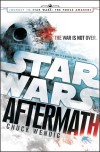Could You But Find It
 This book came recommended to me through my stepfather-in-law, which he read because it was written by a friend of his. I was slightly apprehensive about it, since I have a bias against self-published novels (I've read some good ones, but I still feel like a published work has been vetted, verified somehow), but he loaned me the e-book and I decided to give it a try.
This book came recommended to me through my stepfather-in-law, which he read because it was written by a friend of his. I was slightly apprehensive about it, since I have a bias against self-published novels (I've read some good ones, but I still feel like a published work has been vetted, verified somehow), but he loaned me the e-book and I decided to give it a try.I'd give a summary of the book, but I'd be giving away a lot of it if I did, partly because the plot didn't really get going until past the halfway point of the book. Cilley spent a lot of time building up the character of Bart, and his great-uncle Wade, and while it was some interesting stuff, it felt like it went too far back in the chronology for a proper start. I've read that a good exercise for creating a character is to write a lengthy back-story of their life that doesn't appear in your book so you have a good understanding of your character before starting your story; it felt like Cilley did the same thing, but chose to include all that in the actual story. Regardless, the story has some fantastic elements to it (extraordinary, that is, not unicorns-and-dragons), but it was more a thriller than anything else.
The book felt a little disjointed because Cilley seemed to have a hard time deciding whether he wanted it to be fantasy or a thriller. There's a supernatural element that appears to be the heart of the story, but not a lot of time is spent on it. Instead, Cilley spends a lot of time on the factions who are interested in the supernatural element. It winds up being a maguffin for the action in the book, which is OK, but for whatever reason, the two elements didn't mesh that well. And the less said about the explanation behind the supernatural element, the better. It winds up being silly and stupid.
Some of the dialogue felt stilted and unnatural. Cilley had a habit of jumping from one character's perspective to another mid-chapter, and sometimes even in mid-paragraph. It was a little disorienting to have a section of the story begin with one character and then jump to someone else for the rest of that section. It felt amateurish, and for a self-published first effort, that's exactly what the book is.
The thing is, despite all that, the book is surprisingly readable. It had a sense of humor that didn't overpower the story, the action sequences were appropriate and easy to follow, and though Cilley didn't capture the romance of the story as well as he could have, he did capture the friendship of the main characters very well. He had some poignant moments in his narrative, and he had some sections that were quotable. I'll admit that I went into the story not expecting much because of my bias, but I was pleased to find something that's better than some professionally published books I've read.
Could You But Find It isn't a perfect book, and probably could have used a good editor to winnow it down to its core points, but it's engaging and interesting, which is enough to keep me reading. Like The Martian, I found the book to be somewhat poorly written, though it told a good story, but I'll take that over well-written with a poor story any day. If Cilley were to write another book, I'd give it a read based on how much I enjoyed this one.






